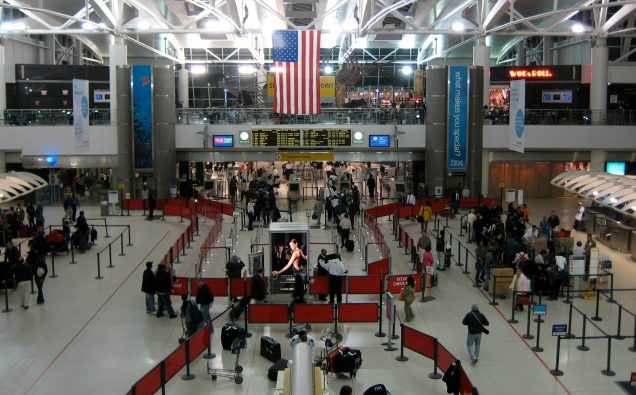
A terminal at JFK airport in New York, also known as gateway to America. Photo by Doug Letterman/Wikimedia Commons
President Donald Trump’s travel ban order halting arrival of people from six Muslim majority countries could go into effect on Thursday in its limited shape following the Supreme Court’s decision.
As per the Supreme Court decision, the 90-day ban will not apply to those with bona fide relationship in the United States.
According to media report, the Department of Homeland Security is working with the departments of justice and state to implement the executive order.
“We expect implementation to begin tomorrow and we’ll release additional information then,” David Lapan, a spokesperson for the Department of Homeland Security, told Business Insider.
President Trump has said the step is not a Muslim ban but a measure taken on national security concerns on travel from what he calls terror-prone countries.
During the period, the Trump Administration says it will work to tighten vetting and immigration procedures.
The order also bars refugees from entering the United States for 120 days.
But human rights organizations have criticized even implementation of the limited version of the executive order, saying it sends a wrong signal about Muslims.
The executive order will bar entry of travelers from Iran, Libya, Somalia, Sudan, Syria and Yemen. The countries listed in the original executive order also included Iraq, which was later taken off the list.
Meanwhile, according to NPR, in a letter written to the Department of Homeland Security, the groups — including Muslim Advocates, the Southern Poverty Law Center and Americans United for Separation of Church and State — said, “the public is in urgent need of information about the manner. which persons can establish a ‘bona fide relationship with a person or entity in the United States,’ the precise criteria for adjudicating waiver requests.

















